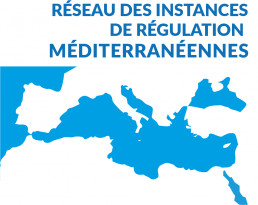Council for Cable TV and Satellite Broadcasting
The Council for Cable and Satellite Broadcasting, Chaired by Ms. Yifat Ben Hay Segev, is an Israeli public entity that was established in the 1982 Communication Act.
The Communication Act empowers the Council to regulate two types of broadcasts:
Subscriber television– cable and satellite multi-channel television for subscribers (75% of Israeli households receive television transmission via the Cable company: “Hot”, or by the Satellite company: “Yes”).
Special interest Commercial Channels – Five commercial channels: an Israeli channel in the Russian language, an Israeli channel in the Arab language, a news channel, a heritage channel and an Israeli music channel. In addition, a Parliamentary Channel and a Tele-shopping Channel.
The Council’s Competencies
The 1982 Communications Act determines the Council’s Competencies. It is the Council’s duty to establish it’s policy regarding the types of broadcasts that will be offered by the licensees, to establish community broadcasts, to encourage local production, regulate broadcasts, enforce the rating system, establish it’s policy regarding exclusive rights in content, conduct tenders and issue licenses and draw codes and regulations.
In addition, the Council advises the government on a wide variety of subjects related to the broadcasting industry.
Codes et regulations
The Council has issued a vast number of decisions and regulations, including regulations regarding the following:
- Program code;
- Advertising and Sponsorship Code;
- Exclusive rights in content;
- Investment in local productions;
- Rating system code;
- Access for the disabled;
- Code of Conduct- EPG services;
- Sponsorship regulations in multi channel broadcasts (local sports events and local arts productions and events);
- Public Service announcement in multi channel broadcasts;
- Policy on tele-shopping;
- Policy on Interactive Services.
Monitoring
The Council ensures that the broadcasters comply with the provisions of relevant laws, Councils’ regulations, policies, codes of conducts and license provisions, including local productions obligations.
The Council’s monitoring is based on random viewing and on viewers’ and competitor’s complaints.
Council's Composition
The Council is funded by state budget, and is composed of 13 members. Member’s term of office is 4 years with an option of re-elections. The Members are elected according to the following method:
six State representatives, of which one member is recommended by the Minister of Justice, one member is recommended by the Minister of Finance, one member is recommended by the Minister of Education and Culture and three members are recommended by the Minister of Communications, including the President.
seven public representatives of which two members are recommended by the Union of Local Authorities, two members representing consumers, two members representing educational and cultural unions, and 1 member representing the artists and creators in Israel.
All recommendations have to be approved by the government.
Latest Developments
Government decision on unified regulator for broadcasting
In Israel there aretwo regulators for commercial broadcasting:
The Council for Cable TV and Satellite Broadcasting and The Second Authority for Television and Radio. The Second Authority regulates two commercial terrestrial television channels and local commercial radio channels.
The government has recently authorized the Minister of Communications to draft a bill merging the two Authorities into one single independent Authority that will be responsible for regulating all commercial broadcasts.
Contact
The Council for Cable TV and Satellite Broadcasting
23 Yaffo Rd, Jerusalem 91999/9
Ahad Ha’am St. Tel- Aviv 61290
Phone: 02-6702210/12, 03-5198122
Fax: 02-6702273, 03-5198141
Links
Ministry of Communications:
http://www.moc.gov.il/new/english/index.html
Second Authority:
http://www.rashut2.org.il/
Israeli Public Broadcaster:
http://www.iba.org.il/

